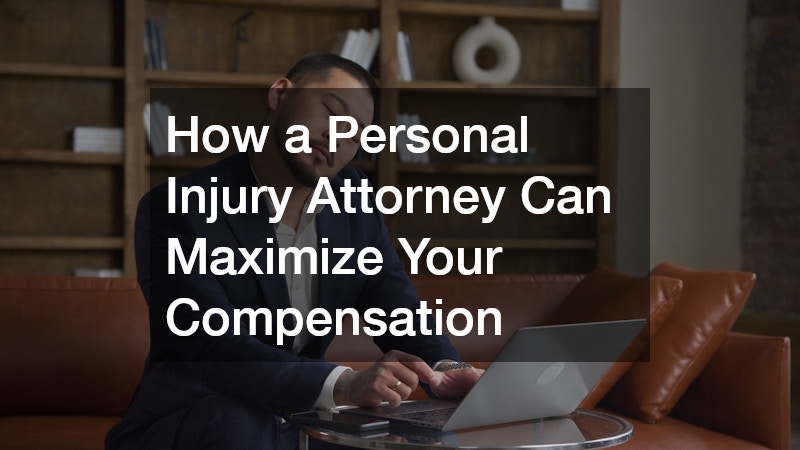The process of hiring a personal injury attorney can be daunting, especially when faced with the stress and uncertainty of dealing with a personal injury claim. Asking the right questions is crucial to ensure that you are getting the best representation possible. Learn some of the most important questions to ask your personal injury attorney to make informed decisions and improve your chances of success.
What is Your Experience?
It’s important to understand your attorney’s background and expertise in handling personal injury cases. This includes questions about their track record, the types of personal injury cases they have handled, and their success rate. An attorney’s experience can provide valuable insights into how they approach cases similar to yours, leveraging their knowledge of local laws and precedents to your advantage.
Many attorneys specialize in specific areas of personal injury law, such as automobile accidents, medical malpractice, or slip and fall cases. Knowing whether your attorney has handled cases like yours can significantly affect your case’s outcome. A seasoned attorney familiar with the nuances of your specific situation will likely be more adept at navigating the legal waters and advocating effectively on your behalf.
Understanding your attorney’s success rate with previous cases can also provide a sense of credibility and reliability. It’s worthwhile to inquire about settlement amounts or verdicts that might align with your expectations. While past performance isn’t a guarantee of future results, having a clear picture of an attorney’s track record can give you confidence in their ability to handle your case expertly and efficiently.
What is Your Client Communication Approach?
Understanding how your attorney will communicate with you throughout the case is crucial. Ask about their preferred methods of communication, the frequency of updates you can expect, and how accessible they are for questions and concerns. Effective communication can help reduce the stress and uncertainty often associated with legal proceedings.
A good attorney will provide multiple channels for communication, such as phone calls, emails, or even text messages, to ensure that you can reach them with ease. Consistent updates about the progress of your case are important; you should feel comfortable reaching out for clarification whenever needed. Knowing how often to expect updates can ease anxiety about your case’s progress and ensure that you are never left in the dark.
Access to your attorney is another key factor to consider. During critical moments in your case, having an attorney who is quick to respond and available to address your questions can make a significant difference in the outcome. Reassurance that your concerns are being addressed promptly allows you to focus on recovery while your attorney handles the complexities of the legal proceedings.
What Are the Potential Outcomes?
Ask about the possible outcomes of your case based on your specific circumstances. This includes both best and worst-case scenarios, as well as any potential settlements and how they are calculated. Being informed of all potential outcomes enables you to make strategic decisions throughout the legal process.
Understanding the range of possible outcomes involves more than just financial compensation. An attorney familiar with similar cases can provide insight into what you might reasonably expect in terms of timelines, settlements, or judgments. They should also explain the factors influencing these outcomes, such as the severity of injuries, liability issues, and jurisdictional nuances.
Potential settlements are often estimated based on similar past cases, taking into account factors like medical expenses, lost income, and emotional distress. Your attorney should guide you on whether settlement discussions are appropriate or if pursuing a trial is in your best interest. Exploring these options thoroughly ensures you are aligned with your attorney in pursuing the outcome that best supports your recovery and financial needs.
What is Your Fee Structure?
Understanding the attorney’s fee structure is essential. Ask about contingency fees, any upfront costs, and how expenses are handled throughout the case to avoid surprises later on. Transparency in fees helps establish a clear financial relationship and allows for better budgeting and financial planning as you proceed with your case.
Many personal injury attorneys work on a contingency fee basis, which means they only get paid if you win your case. This fee is typically a percentage of the settlement or judgment amount. Clarifying this percentage and whether it applies before or after expenses are deducted is essential to understanding your potential financial outcome.
In addition to contingency fees, it’s important to inquire about other potential costs, such as legal fees or additional charges for case-related expenses. Understanding who is responsible for covering costs like court fees, expert witness fees, and administrative costs allows you to prepare financially. Your attorney should provide a detailed breakdown of expected expenses to ensure there are no financial surprises as your case progresses.
Asking the right questions when hiring a personal injury attorney can significantly impact the outcome of your case. By thoroughly understanding your attorney’s experience, communication style, potential timelines, outcomes, and fee structures, you can ensure that you are well-prepared and confident in your legal representation. This strategic approach not only enhances your ability to manage expectations but also empowers you to navigate the legal process with greater clarity and peace of mind.





